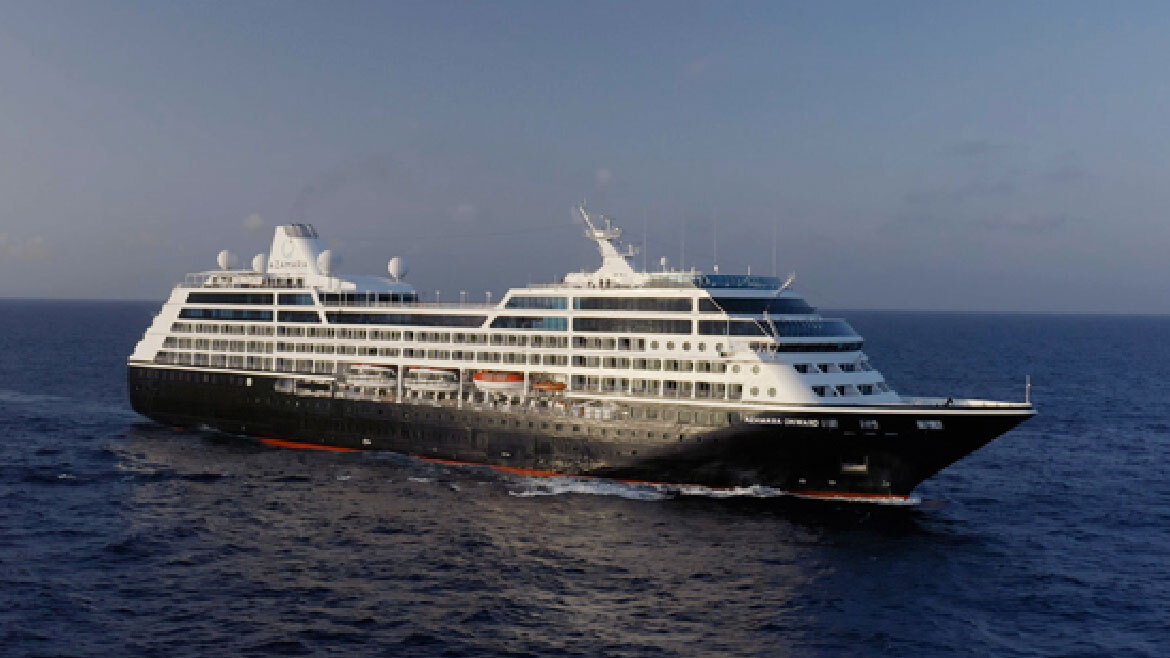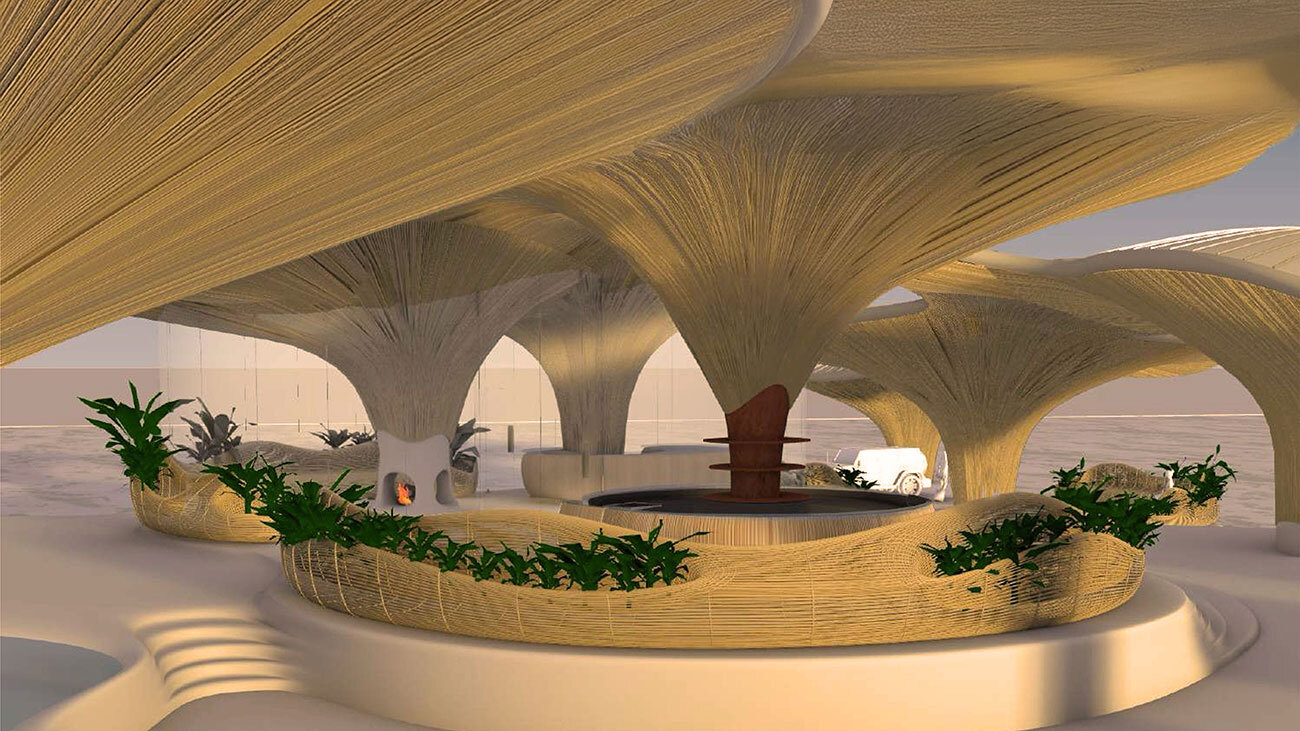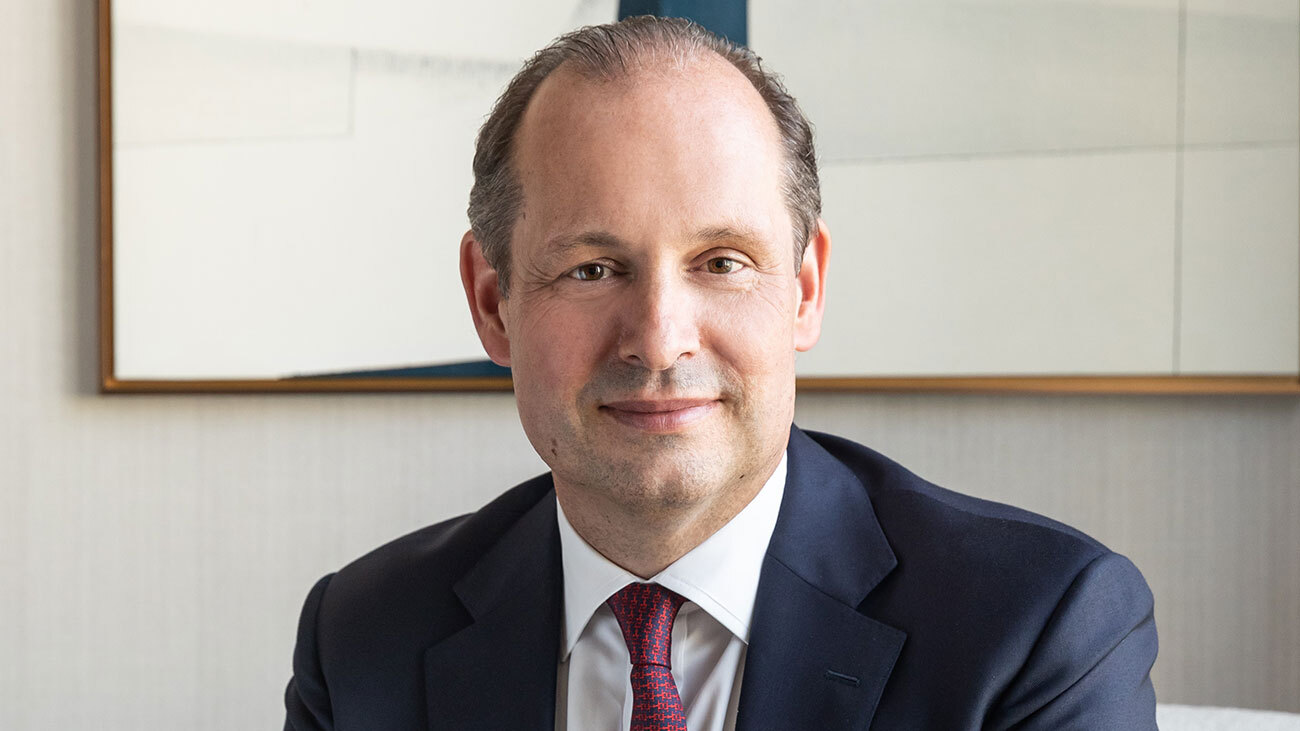Turning trash into treasure at Fairmont Maldives Sirru Fen Fushi
Don’t get me wrong, I’ve been to several fantastic Maldivian resorts that require a relatively short speedboat transfer from Malé airport, and touched down on far-flung atolls after wallet-busting seaplane flights only to realise I’m under the flight path of airplanes landing at nearby domestic airports. But if any resort justifies the added cost of a seaplane transfer, it is Fairmont Maldives Sirru Fen Fushi on the Shaviyani Atoll, in the Maldives’ far north.
Here, there’s no artificial light to shatter the horizon once the sun sets – just star-spangled skies, a wonderful silence and a beautiful, healthy house reef teeming with wildlife. Blissful seclusion aside, other features boost this resort’s wow factor, starting with the Maldives’ longest swimming pool, which streaks from one side of the island to the other like an aquatic highway – albeit one with palm trees sprouting from its centre, a reminder of the owner’s determination to work around nature, rather than sculpting it to suit their whims.
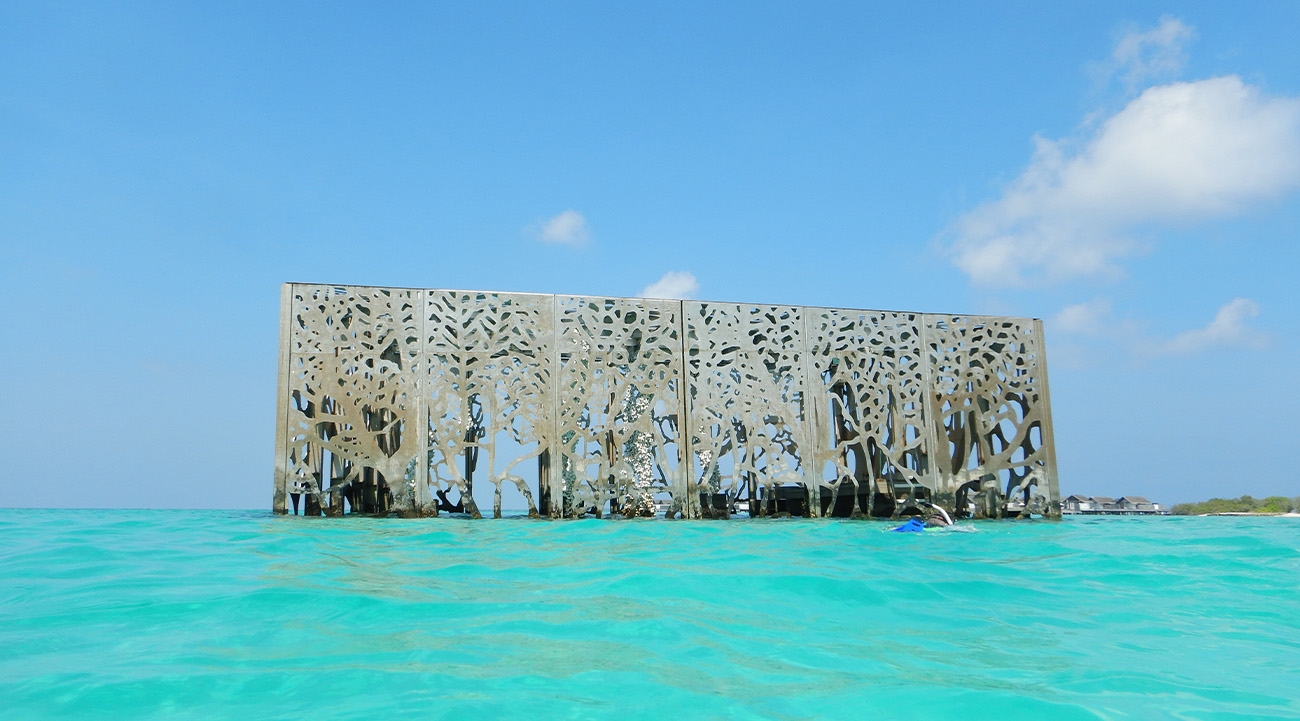
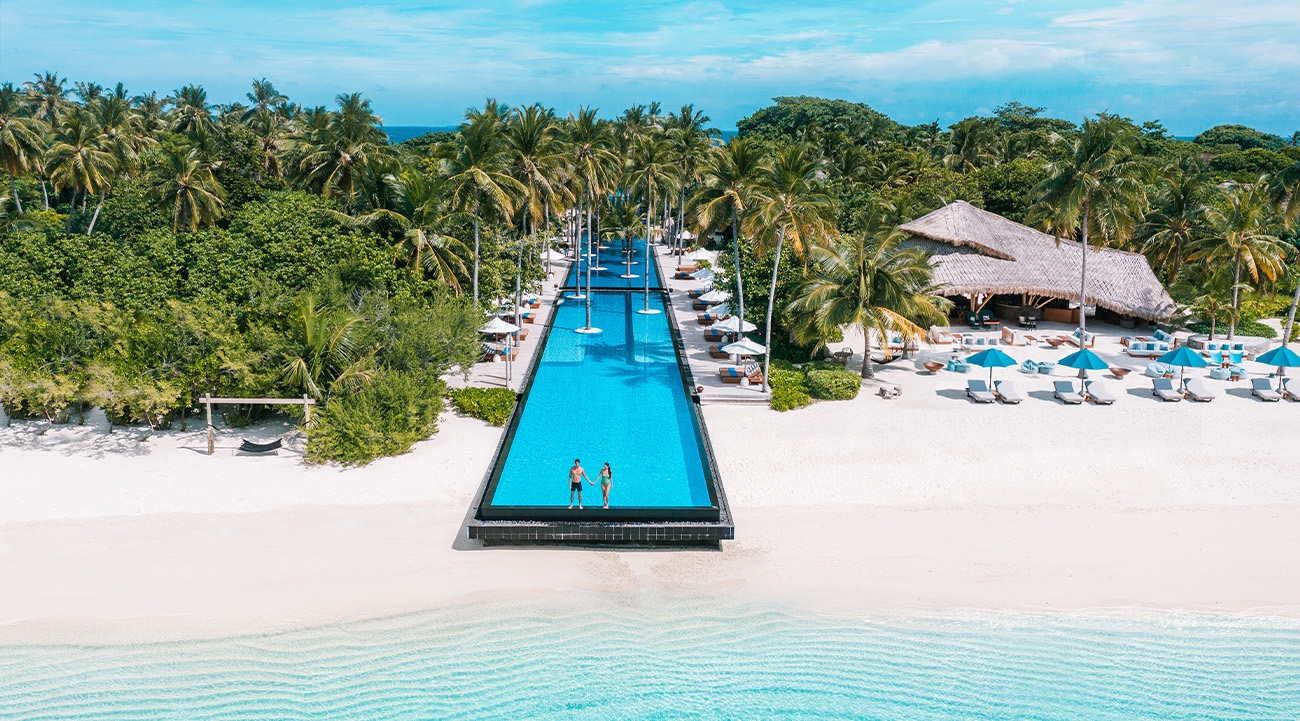
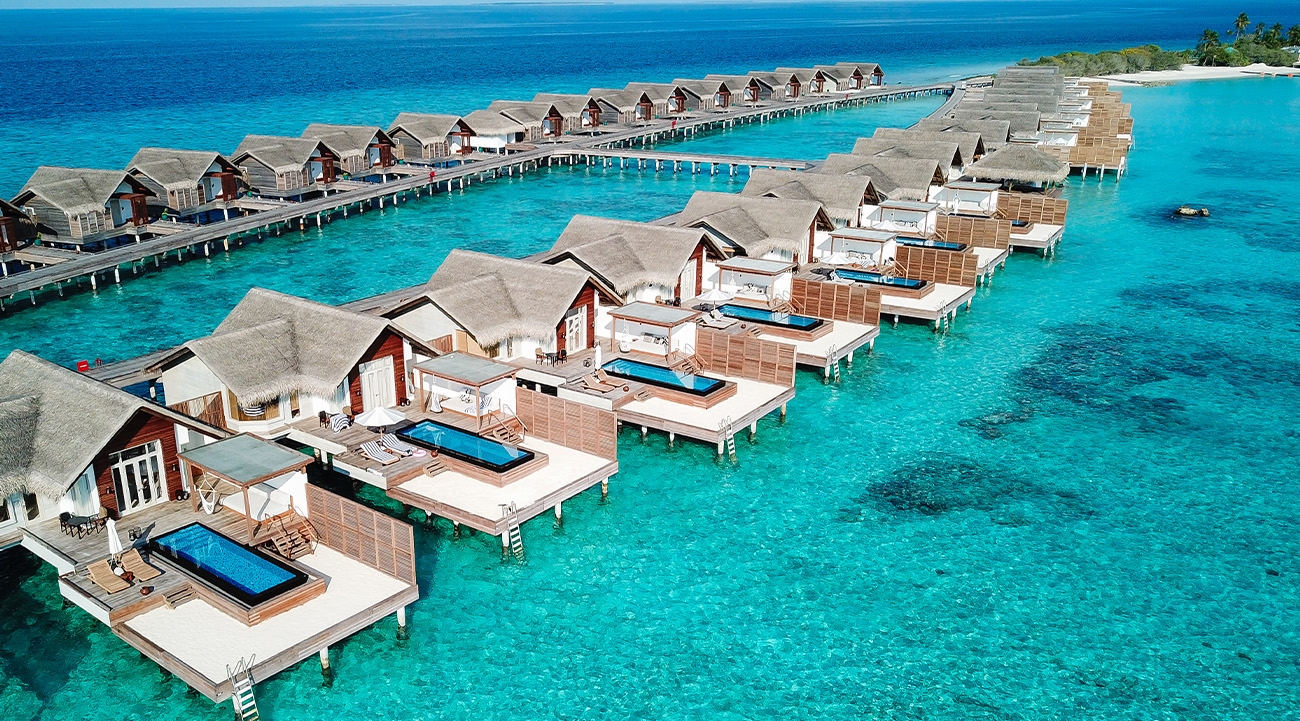
Preserving the natural environment is a priority at this 120-villa, Green Globe-certified property, proof of which is the scarcity of plastic. All too often, resorts shout about reducing waste while filling their rooms with single-use shampoo bottles and plastic-wrapped amenities. At Fairmont Maldives Sirru Fen Fushi, the resort’s approach to sustainability goes far beyond simply banishing plastic from bathrooms.
Every other day, staff conduct beach clean-ups, routinely bagging around 4kg of litter, and Sam Dixon, marine biologist and sustainability manager, is constantly searching for new ways to reduce plastic use, whether it’s by sourcing chocolate wrapped in cardboard for the villa minibars, or scrapping plastic straws long before other resorts started doing so.
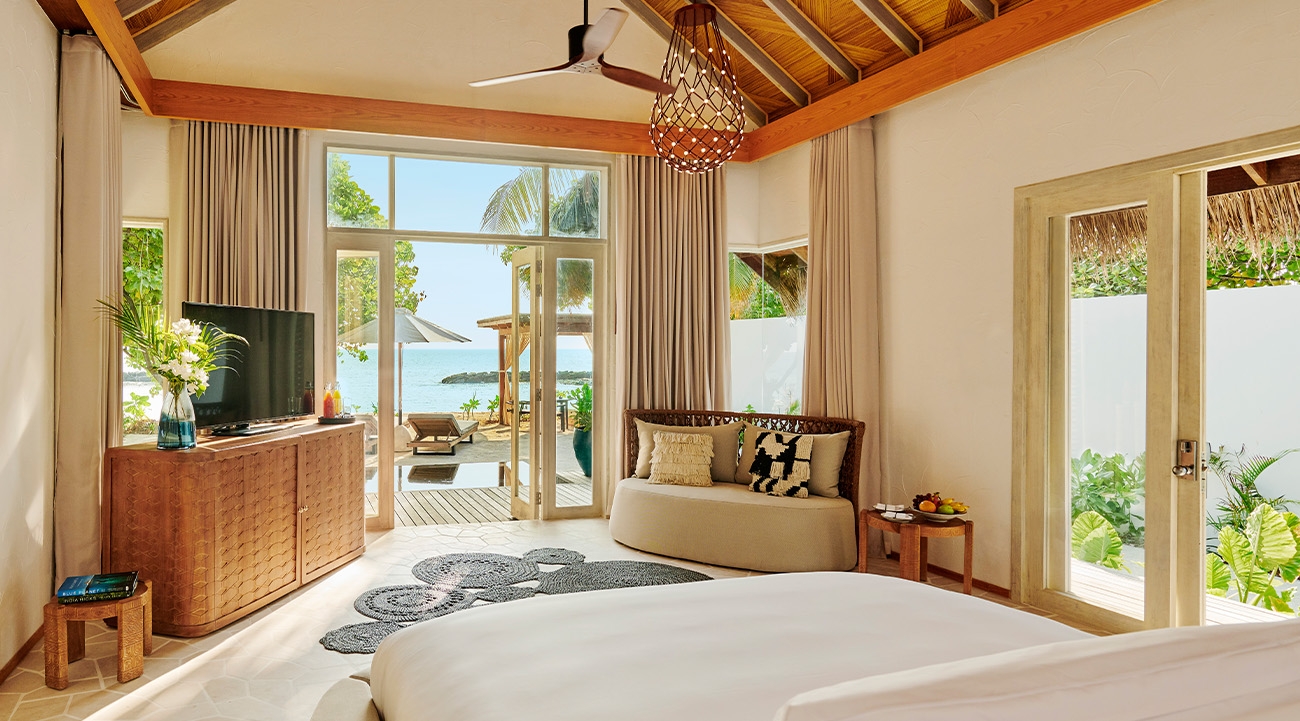
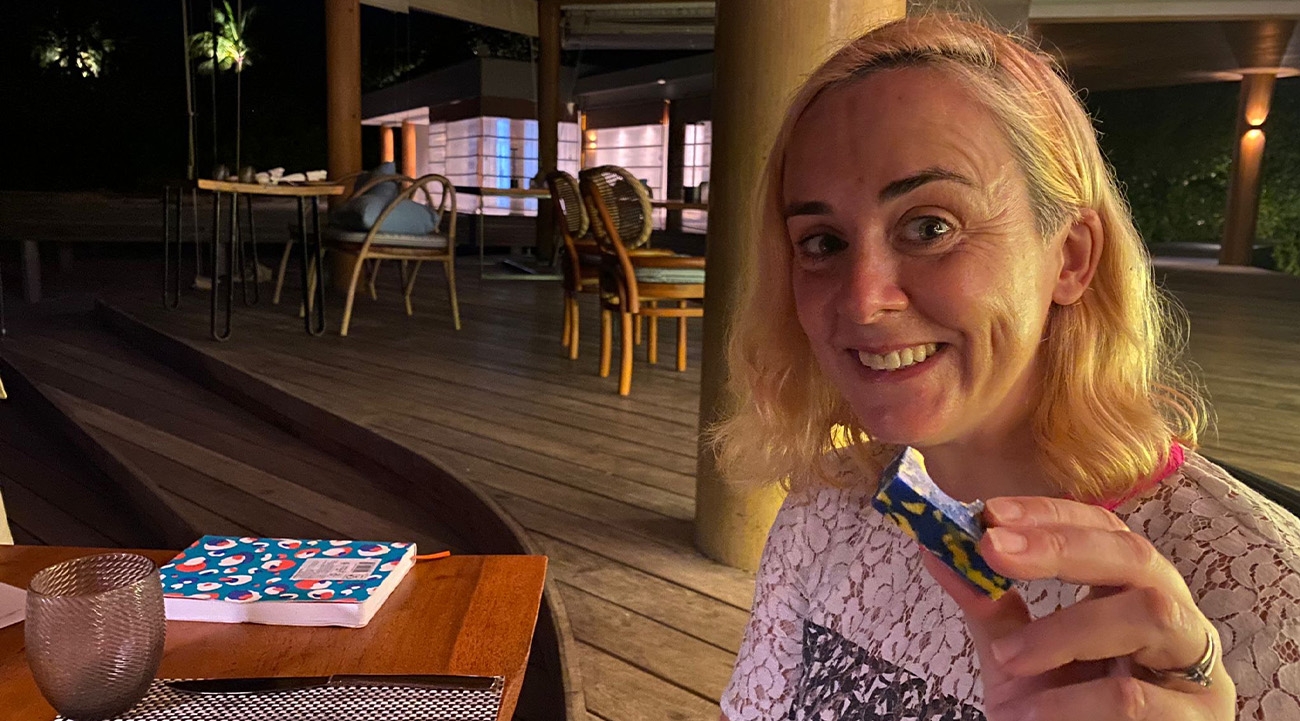
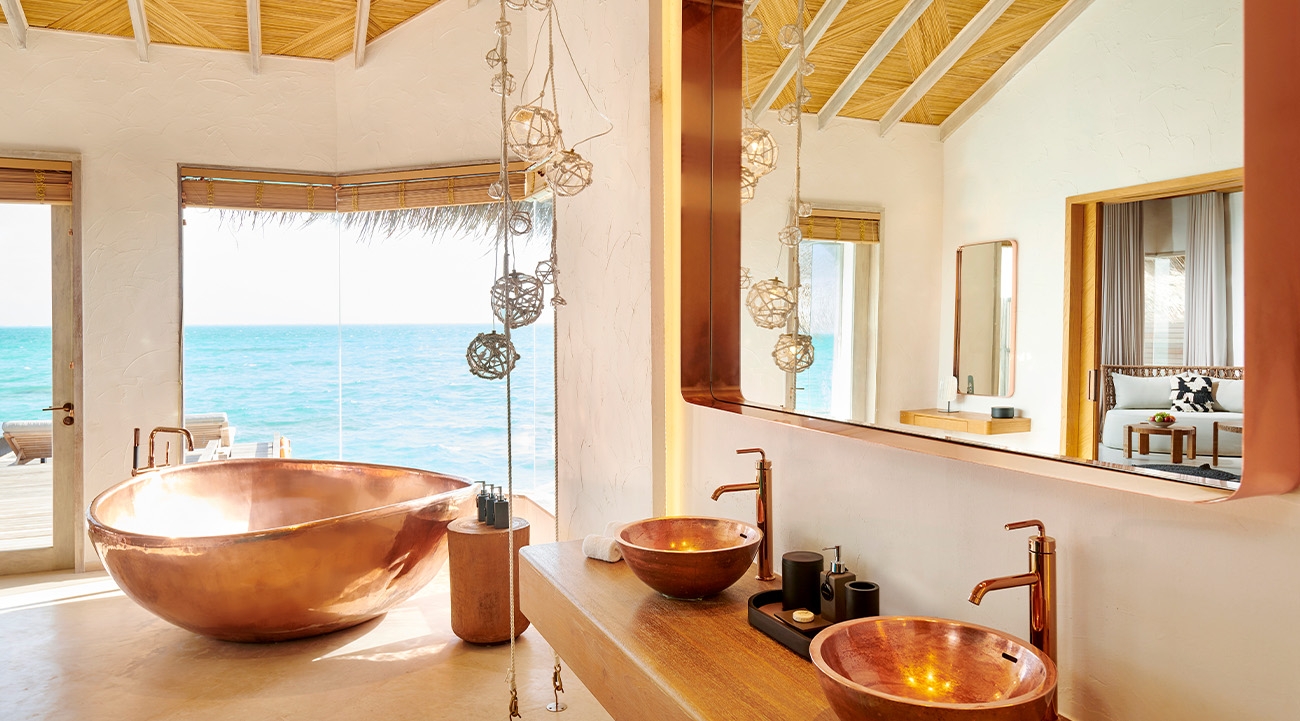
Under the sea
There’s a similar passion for sustainability beneath the waves too. Take the Coralarium for instance, designed by the legendary underwater sculptor Jason deCaires Taylor. Snorkel inside this semi-submerged cube and you can stare down through the glass-clear water at abstract shapes that double as coral propagation structures. What’s more, the Coralarium and the underwater sculptures that surround it are a haven for fish.
The star of the sustainability show, however, is the Sustainability Lab, tucked into a Lego-like stack of shipping containers and filled with high-tech (and expensive) kit which offers further proof that staff are serious about protecting the planet.
It opened early last year, and as well as recycling the resort’s waste plastic, it recycles marine debris washed up on neighbouring islands and brought here by locals who have heard about the work being done at Fairmont Maldives. During a tour of the lab, marine biologist Neus Segura shows me huge piles of bright-blue ice packs dropped off by local fishermen.
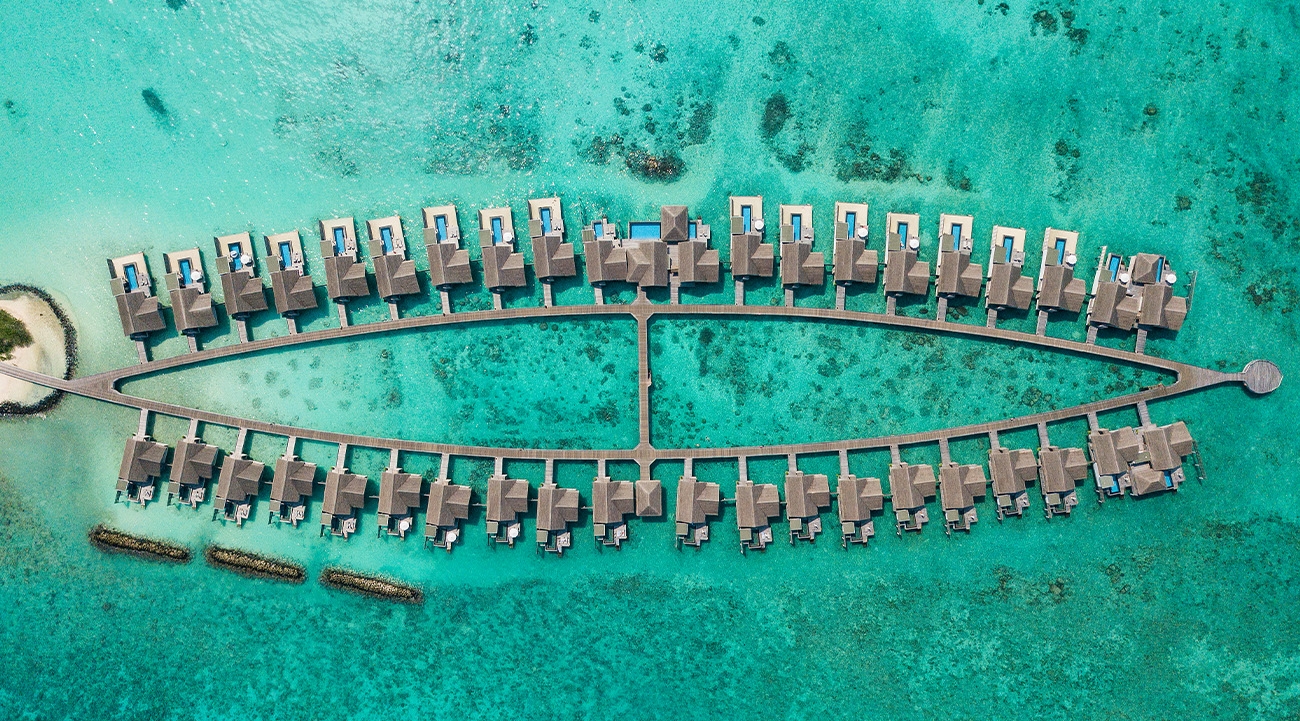
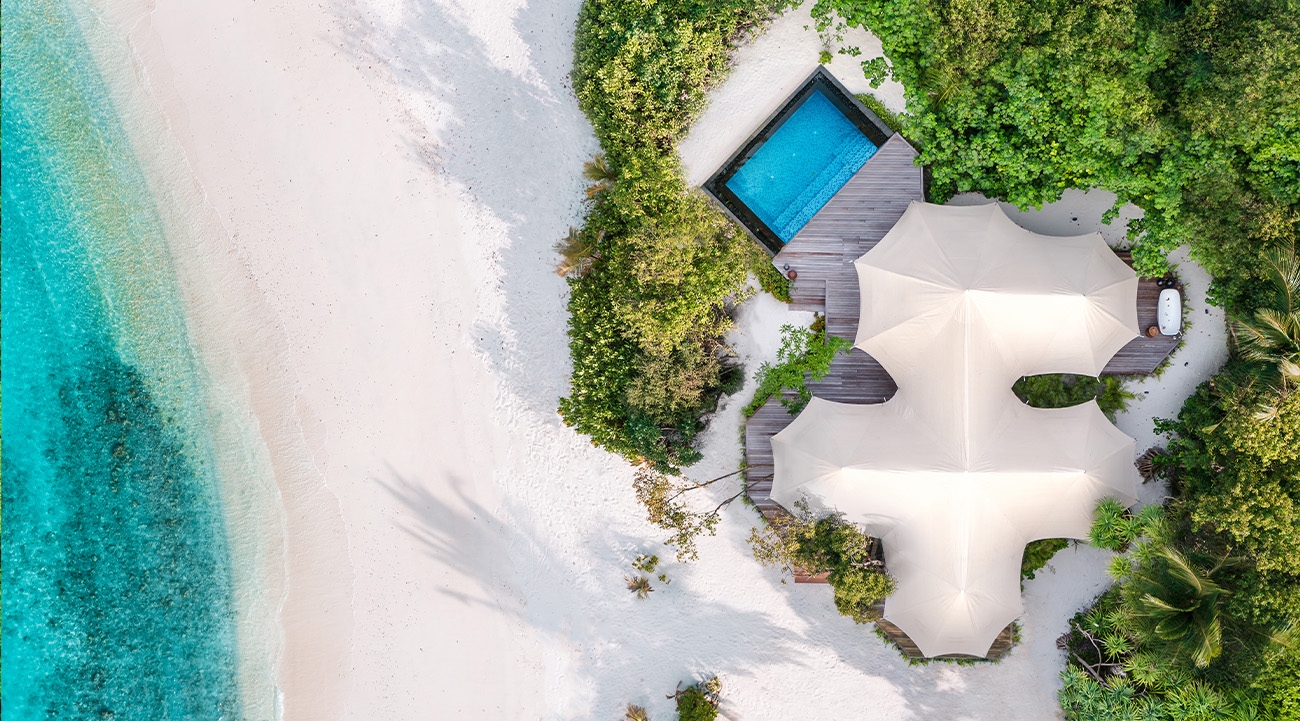
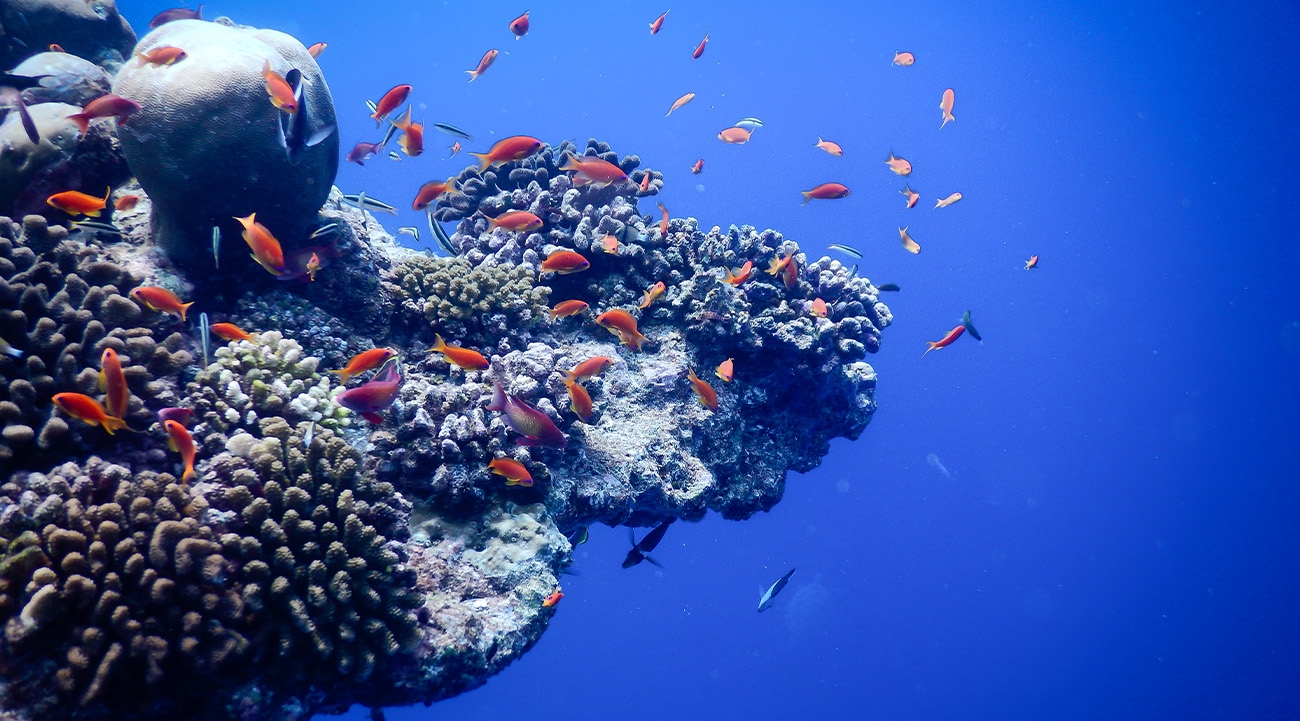
They’re used to keep their catch chilled, but often end up in the sea. Nearby, crates overflow with tangles of netting – drift or ‘ghost’ nets that wash up here from Sri Lanka and India (in the Maldives, everything must be caught using a pole and line). These are the most common plastics, Neus explains, pointing to wall charts listing the seven types, some of which are easier to recycle than others.
The process is relatively simple. First, the plastic is shredded into pellets, before they’re fed into an extruder, which melts the fragments and allows them to be moulded into new shapes and items. At Fairmont Maldives Sirru Fen Fushi, this includes rulers, bag tags and pendants shaped like turtles and manta rays, although larger items can be made too.
In one of the swankier villas, I’m shown colourful bar stools made from recycled plastic waste, which has also been used to make tables in the kids’ club and the chopstick holders in Kata, the resort’s Japanese restaurant. Several members of staff use clipboards made from recycled ice packs. Guests can join workshops during their stay and make their own luggage tags, and are even able to design bespoke pieces of furniture that can be shipped home.
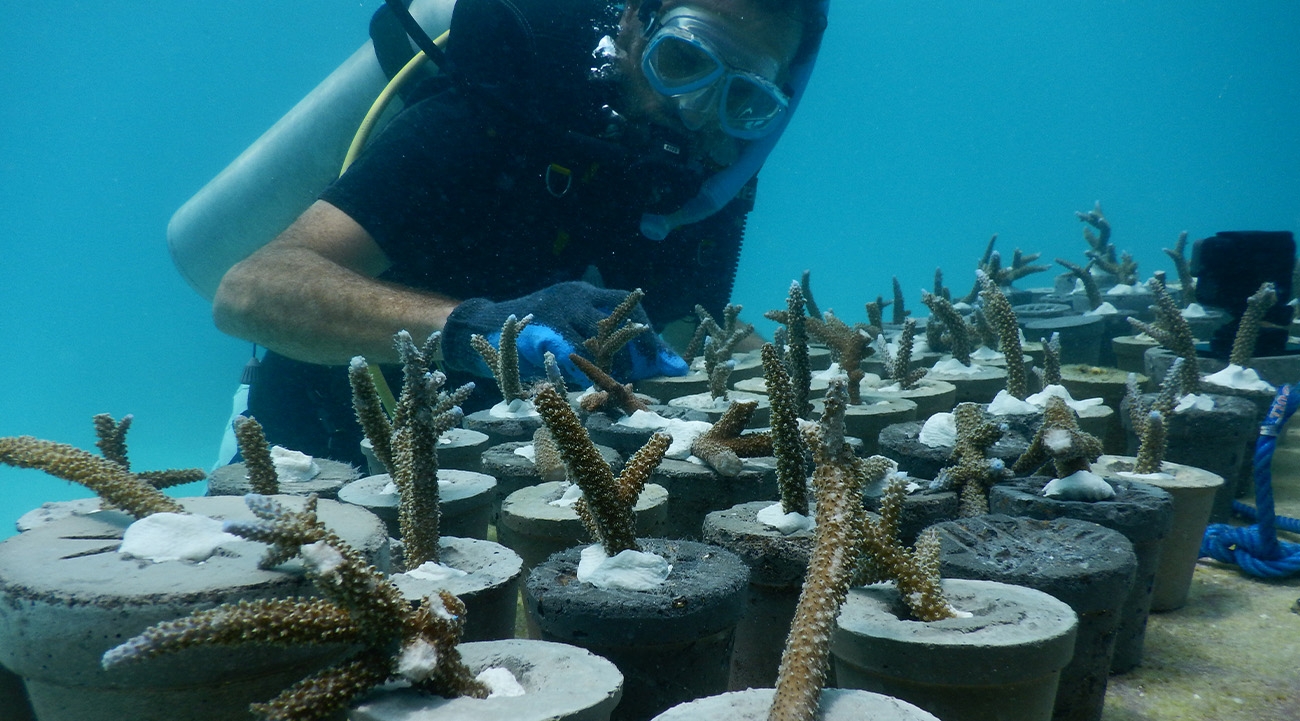

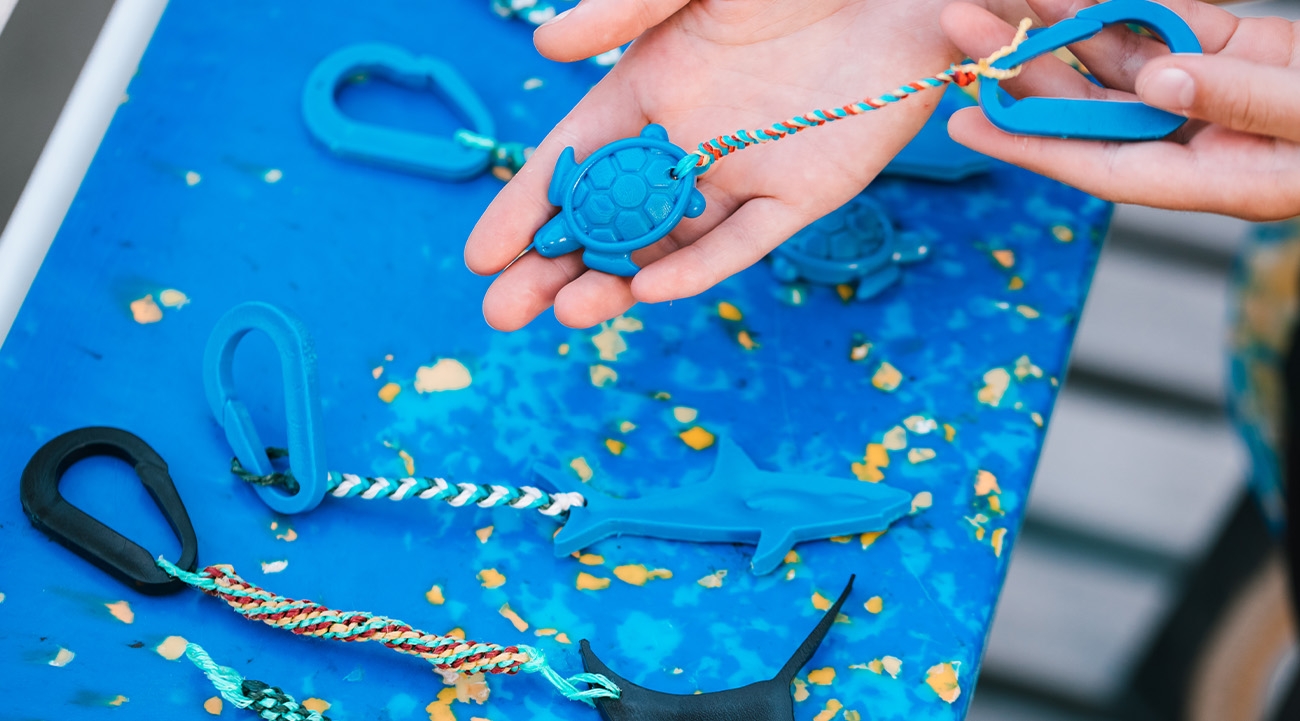
Planet protection
It’s clear that the resort’s approach amounts to much more than just box-ticking. One day I join Neus on a visit to a school on a nearby island, where she talks about the plight of turtles (the resort works closely with sea turtle charity the Olive Ridley Project) and the problem of plastic waste.
Afterwards, we walk to a beach and the schoolchildren scatter across the sand, grabbing pieces of plastic and filling several huge bags in a matter of minutes. My discovery of a tattered spa slipper bearing the name of a nearby resort is a reminder that the problem of waste is often left to others to clean up, rather than those who create it. These excursions are open to guests, who are truly spoilt for choice when it comes to activities.
I can practise my swing on the tennis court (wannabe pros can sign up for beat-the-coach sessions – successful challengers will have their session fee waived), perfect my painting skills during art lessons or channel my inner Gordon Ramsay during cooking classes. I can join sunrise or sunset yoga sessions, or opt for some self-improvement courtesy of masterclasses with one of the resort’s visiting experts – recent practitioners have specialised in everything from reiki to craniosacral therapy. And then there are the restaurants.
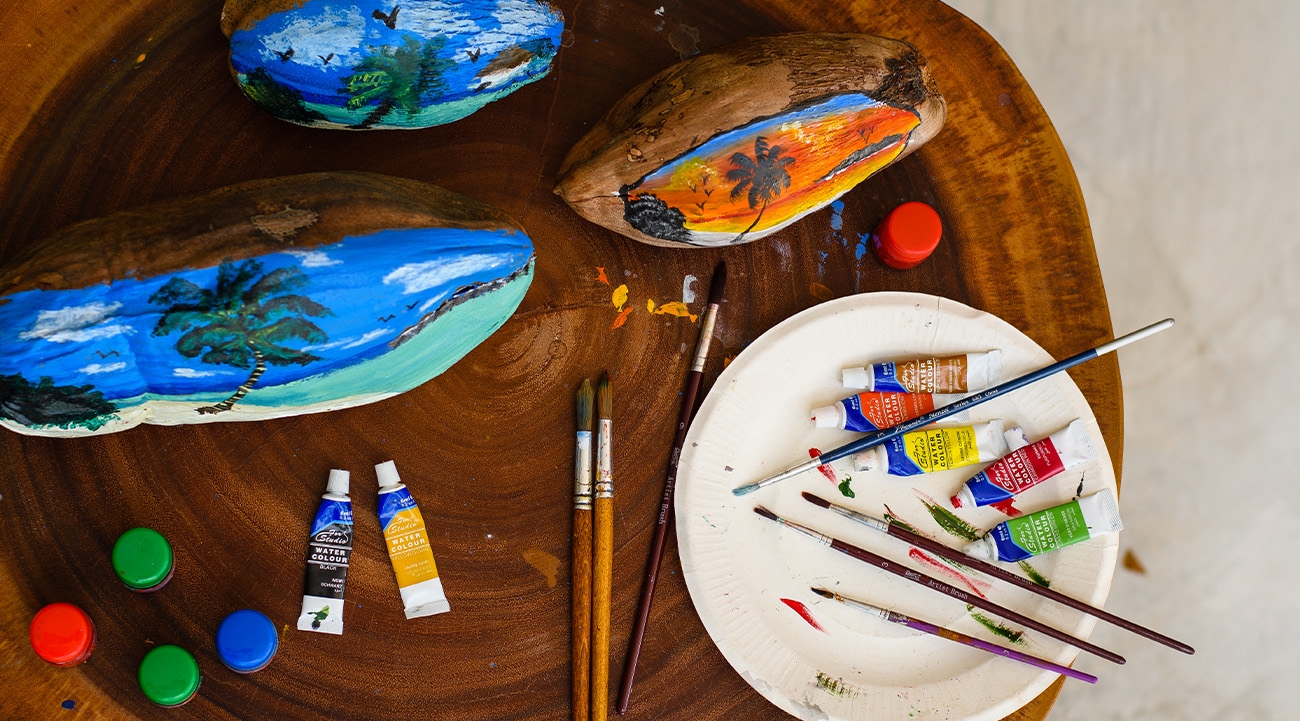

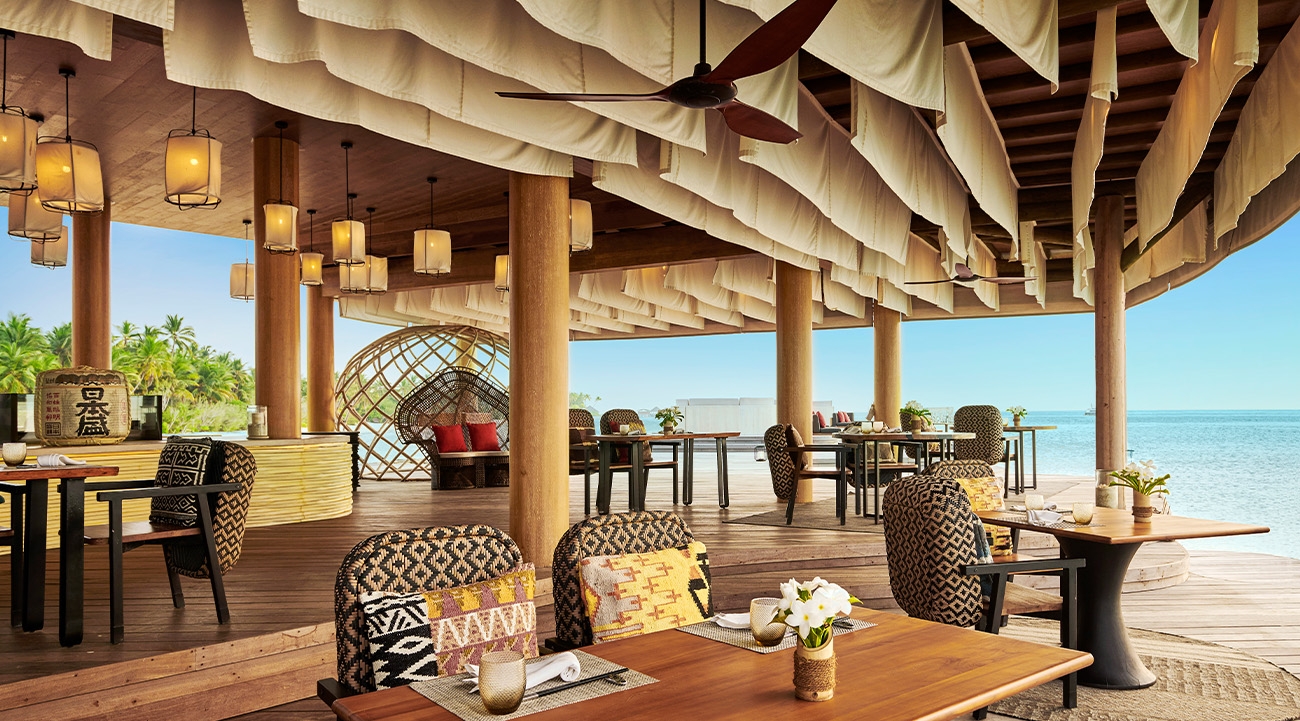
Raha is the all-day dining spot, Kata serves up Japanese fare, Onu Onu is a beachfront venue specialising in tapas and delicious cocktails, and Azure is where to head for seafood. Not that dragging myself away from my beautiful Beach Sunset Villa, with its meandering, palm tree-lined path to the beach, is easy. Here, even those staying in the smallest accommodations – the Water Sunrise Villas – still have 164sq m of space to explore.
The largest are the three-bedroom Beach Sunset Villas, and last year new options were added including safari-style tented villas – with one Beach Tented Villa and four Tented Jungle Villas to choose from. I’ll admit it, there was a time when I bemoaned the decline of plastic straws and those single-use plastic bottles, but Fairmont Maldives Sirru Fen Fushi and my handmade, turtle-shaped luggage tag – which, in all probability, is made from the items I once coveted – is proof that embracing sustainability doesn’t mean losing the luxury factor.
Book it: Carrier offers seven nights at Fairmont Maldives Sirru Fen Fushi from £6,648 per person. The price includes four nights in a Water Sunrise Villa, three nights in a Beach Tented Villa with Pool, a Conscious Castaway experience, dolphin cruise and more, plus flights, seaplane transfers and fast-track service at Heathrow.
carrier.co.uk

